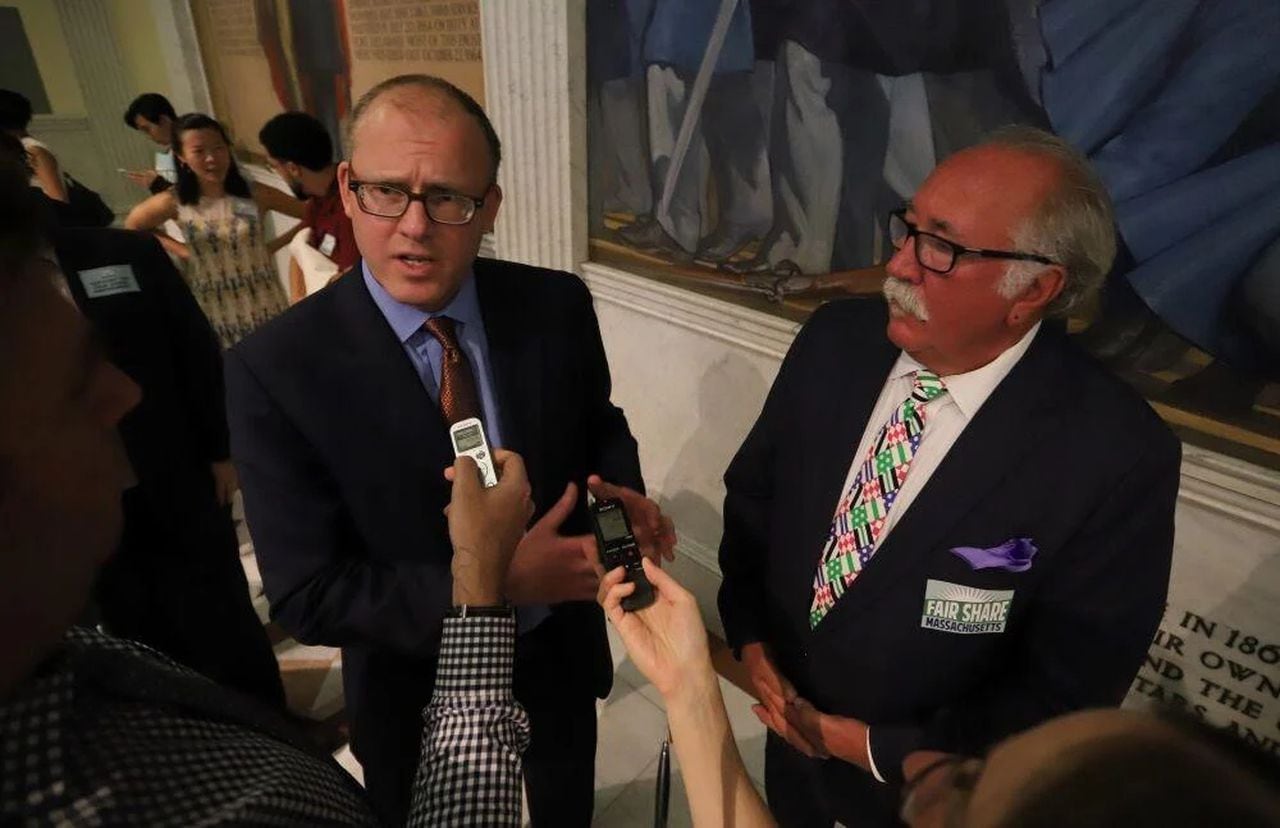
With wage hike victories under their belts across the nation, and minimum wage increases taking effect in two dozen states, advocates for service workers in Massachusetts and elsewhere are turning their focus to one of the pivotal economic fights of 2024: Raises for hundreds of thousands of tipped workers.
In Massachusetts, advocates for the Cambridge-based One Fair Wage announced in November that they’d collected 108,000 signatures to advance a proposed ballot measure boosting the Bay State’s tipped wage of $6.75 an hour, according to the Boston Globe.
Under state law, businesses are allowed to pay the wage if a worker’s tips get them to the statewide minimum of $15 an hour, the newspaper reported. The proposed ballot measure would phase out the state’s “service rate” by 2029, according to the Globe.
The proposal also would allow for tip-sharing between front- and back-of-house workers once wages reached parity among all workers, the Globe further reported.
All told, some 240,000 people work in the restaurant industry across the commonwealth, according to One Fair Wage’s website.
The advocacy group has cast the fight as one of both economic fairness and racial justice, pointing out that “nearly 30% of Massachusetts restaurant workers are people of color and the majority are women largely employed in casual restaurants where wages and tips are limited.”
And despite omnipresent tip jars — both physical and virtual — restaurant workers across the Bay State have reported that their tips have declined by 50% to 70%, according to One Fair Wage.
“Each signature we’ve collected and each legislative win represents a step toward more livable wages in this country and a step away from an archaic compensation system mired in the injustices of Jim Crow,” One Fair Wage President Saru Jayaraman said.
“As we approach a general election cycle, economic issues, especially the cost of living, will be at the forefront of voters’ minds,” Jayaraman continued. “Legislators are increasingly recognizing the need to move towards a living wage and to end the sub-minimum wage. This isn’t just about fair pay; it’s about dignity and economic justice.”
The advocacy group is putting its political muscle behind similar ballot measure campaigns in Arizona, California, Michigan, and Ohio, it said in a statement. It’s also involved in legislative efforts to boost the tipped wage across the border in Connecticut and Rhode Island, as well as Hawaii, Illinois, Maryland, New York, and Puerto Rico.
Those campaigns come on the heels of successful efforts in Flagstaff, Ariz.; Washington D.C., and Chicago, the group said in its statement. Overall, One Fair Wage says it’s aiming to eliminate the subminimum wage in more than 25 states in time for the nation’s 250th birthday in 2026.
The boost may also provide economic stability at a time when research shows so-called “tip fatigue” setting in among consumers, who are now being asked to pony up gratuities for a new universe of workers even as prices — particularly at restaurants — rise.
More than seven in 10 respondents (72%) to a recent Pew Research Center survey said that tipping is expected in more places than it was five years ago. That finding tracked “with anecdotal reporting and has even been dubbed ‘tipflation,’” according to Pew.
Public support for the ballot measures and legislative pushes reflects “a growing public awareness for the need to raise wages and end all sub-minimum wages in the U.S.,” Jayaraman said.
Some restaurant workers, meanwhile, fret that the end of the tipped wage — which puts some workers far above the $15 an hour minimum targeted by advocates — will mean that their actual wages will decrease.
“I love the idea of everyone making a fair wage, but personally I’m worried. With tips I make far over the minimum wage. Interested in follow restaurant workers thoughts on this?” one restaurant worker in Chicago posted to Reddit earlier this year.
“I’m worried it’ll be the end of tipping and I know my place would never pay me anything close to what I’m making with tips. I wish they would, but I can’t imagine any restaurant paying for front of house service beyond the required minimum wage,” the restaurant worker wrote.
In September, a joint state House and Senate committee heard testimony on a raft of wage-related bills, including a measure that would increase the sub-minimum wage for tipped workers to $12 by 2027 and set it at 60% of the full minimum wage in the future, State House News Service reported.
“Unfortunately, one of the things we did not expect back in 2018 was that we would suffer the rate of inflation that we have seen in recent years. Nobody expected we’d be seeing 9 percent or close to double-digit inflation, when we’d had 1 or 2 — maybe 3 — percent inflation for so many years,” Sen. Jason Lewis, D-5th Middlesex, the bill’s sponsor, said according to State House News Service. “So that level of inflation has really eaten into, obviously, the real earnings that our residents are taking home.”





